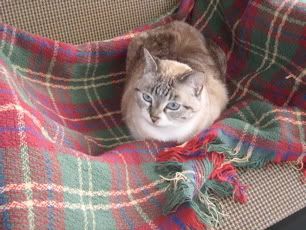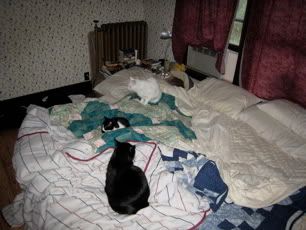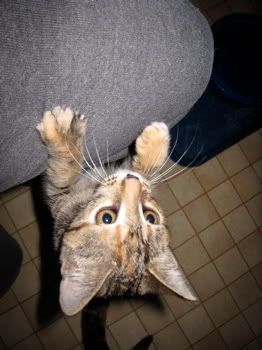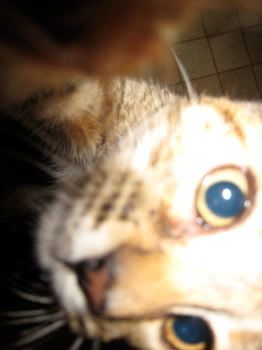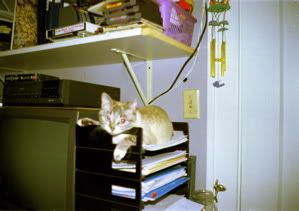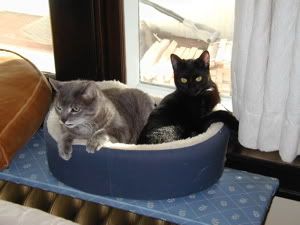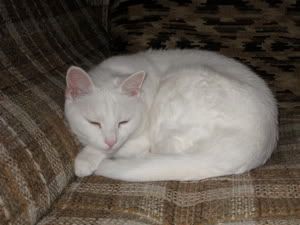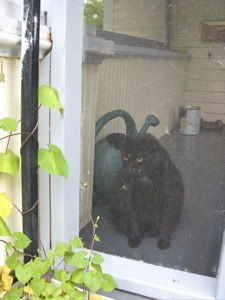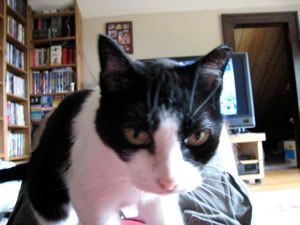It has come to managment’s attention that the days are growing shorter and colder. The precipitating factor for this phenomena has to do with the Earth’s axial tilt and the changing angle of our position on the planet relative to the incoming light and heat of the sun. This is not, repeat not a plot on the part of the two-legged members of the household intended to end in the feline collective becoming a small herd of fuzzy ice blocks.
Further, though there are rumors going about that this facility’s h-vac system may soon be switched over to an artificial heating-centered approach, we must emphasize that’s all it is, rumors. The heating will not be turned on until after all air-conditioning units have been removed and placed in winter storage.
Finally, and perhaps most importantly, the drop in facility temperatures are not to be considered sufficient justification for open warfare over possession of lapspace in regards to the writer-in-residence. Yes, management knows that it is cold. Yes, management understands that the lapspace has both built in heating (see attached document on human body temperature) and auxiliary artificial heating (see attached specs for laptop processor temperature) but there are other seats in the house and the writer-in-residence has not been granted a cold-kitty workload reduction exemption—quite the contrary.
In closing, please consider the use of insulative materials such as blankets or duvets as a first resort. Also note that the sheepskin lined catbeds were provided with the heating needs of the feline collective specifically in mind. Don’t make us break out the electric blanket.
Thank you,
The Management
(Originally published on the Wyrdsmiths blog September 9 2008, and original comments may be found there. Reposted and reedited as part of the reblogging project)


